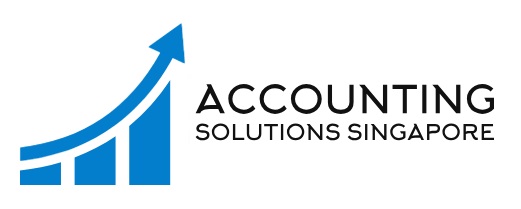File Your Tax Form C / Form C-S On time
It is getting towards that time of the year where you need to complete your tax return. The filing of Form C or Form C-S (known as an income tax return) is simply an income declaration for the year of assessment (YA).
All Singapore companies must submit tax returns to the Inland Revenue Authority of Singapore (IRAS) on or before 30 November annually. It does not matter whether the company has a profitable year or suffered a loss. It is mandatory to file Form C or Form C-S once a year.
Singapore tax agent, who understands the tax regulations, can fill up Form C or Form C-S and submit it to IRAS.
However, the responsibility for the tax return will ultimately rest with the company’s directors. The corporate tax rate is at a flat rate of 17%.
1. Updates in Budget 2020: Corporate Income Tax (CIT) Rebate
In Budget 2020, the CIT rebate increases to 25% of the corporate tax payable for YA 2020, subject to a cap of SGD 15,000.
2. Budget 2018: Corporate Income Tax (CIT) Rebate
In Budget 2018, the CIT rebate increases from 20% to 40% of the corporate tax payable for YA 2018, subject to a cap of SGD 15,000.
For YA 2019 CIT Tax rebate cap is at 20%, with a cap of SGD 10,000.
3. Budget 2017: Corporate Income Tax (CIT) Rebate
In Budget 2016, the CIT rebate increased from 30% to 50% of the corporate tax payable for YA 2016 and YA 2017, subject to a cap of SGD 20,000 for each year of assessment.
In Budget 2017, the government revised the A 2017 CIT Tax rebate cap upwards to SGD 25,000. For YA 2018, the CIT rebate is revised to 20% of corporate tax payable at a cap of SGD 10,000.
4. What is the difference between Form C-S, Form C and Form C-S (Lite)?
In effect, Form C-S is a simplified version of the tax return.
The IRAS will accept this version from small companies.
Form C-S
The company must meet all four criteria to use and file Form C-S.
1. The company is incorporated in Singapore;
2. The company has an annual revenue (i.e. main source of income) of SGD 5 million or less (effective from YA 2017 onwards);
3. The company derives only income taxable at the prevailing corporate tax rate; and
4. The company does not claim to carry back relief, group relief, investment allowance, research and development tax allowance, foreign tax credit and tax deducted at source.
The company needs not to submit the financial statements, tax computation, and support schedules with the Form C-S unless IRAS requests.
Form C
If your company does not qualify to file Form C-S, you must submit Form C. Together with Form C, you must file the company’s financial statements, tax computation, and supporting schedules.
Form C-S (Lite)
For companies with annual revenue of less than SGD 200,000, the form C-S (Lite) is an option to simplify their income tax returns. If a company submits Form C-S (Lite), it does not need to submit its financial statements or tax computations. The companies must prepare these documents and be prepared to submit them if requested by IRAS.
5. How does the company obtain these relevant forms?
The IRAS will send a filing package to the registered company address by May of each year, commencing from the 2nd year following the incorporation of the company in Singapore.
All CorpPass users can fill in Form C-S or Form C online.
6. When should the company file Form C or Form C-S?
Companies, who opt for paper filing, must complete and file either Form C or Form C-S by 30 November.
For e-filing, there is a 15-day extension to 15 December each year for both Form C-S and Form C.
7. What are the additional documents required for Form C?
In addition to completing the required form, the companies must submit other relevant documents with Form C. Companies must include a tax computation including details of any asset acquisitions or disposals.
Companies must include the financial statements and comply with the Singapore Financial Reporting Standards and Singapore Companies Act, Chapter 50.
8. What is the penalty for late submission of tax returns?
Not submitting a tax return on time can be a costly mistake.
Every year many companies do not comply with the IRAS filing requirements. If you find yourself in this position, you can expect the IRAS to issue a Notice of Assessment (NOA) based on the ECI submitted earlier by the company.
There may be fines for either late submission or late payment. If all else fails, the relevant party will receive a court summons. The penalty, in this case, can be as much as twice the required amount of tax!
There is an appeals process should fines be imposed, but nobody wants to be in that position.
9. Where to seek assistance to file Form C or Form C-S?
We offer corporate tax services to Singapore companies to prepare tax computation and file Form C / Form C-S.
Should you need tax advice on tax exemption or incentive, please send an enquiry, and our tax advisor will contact you.
